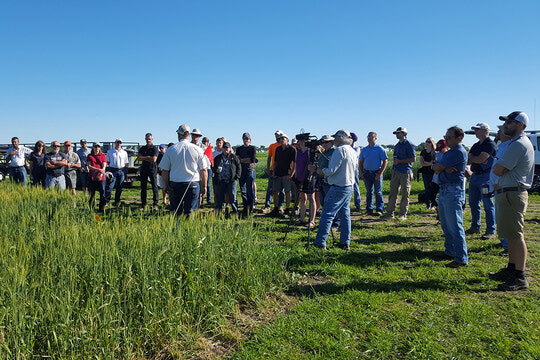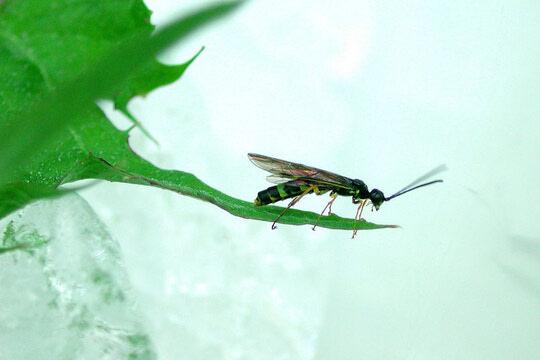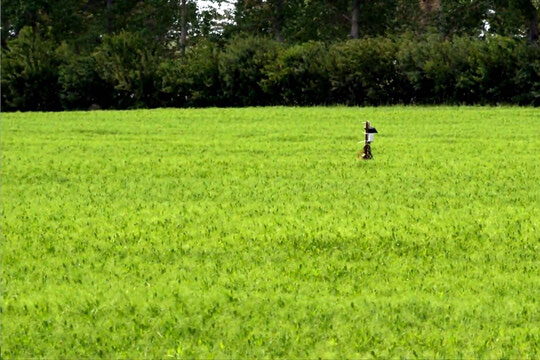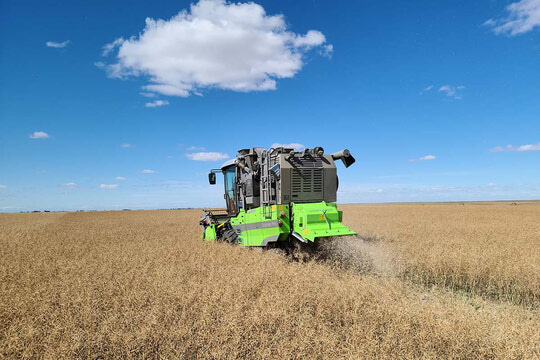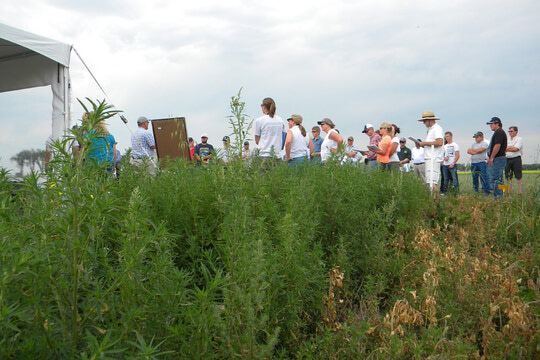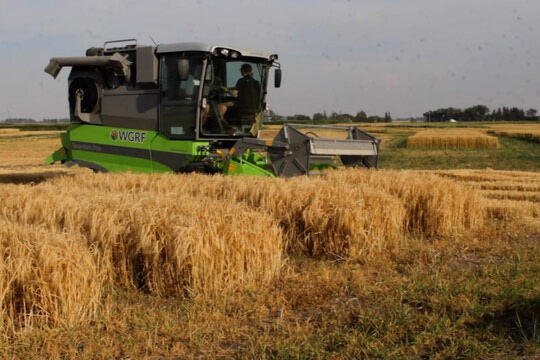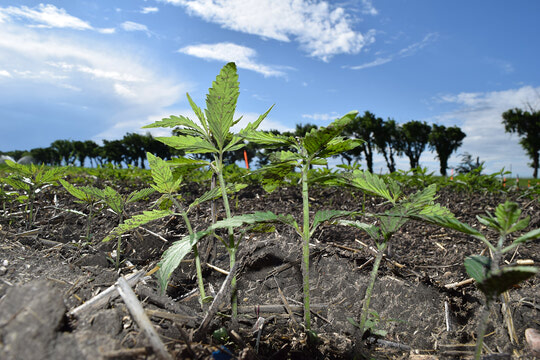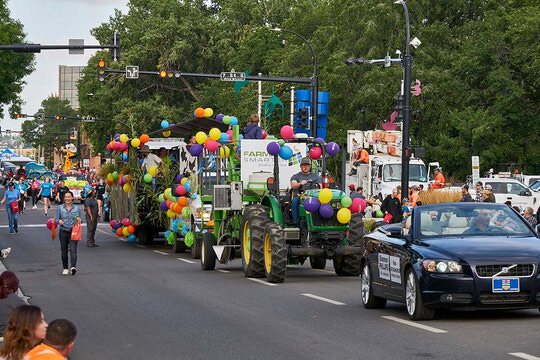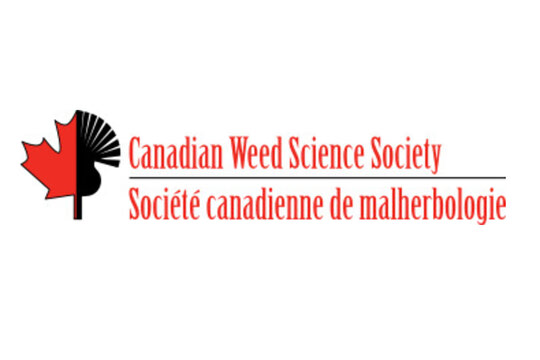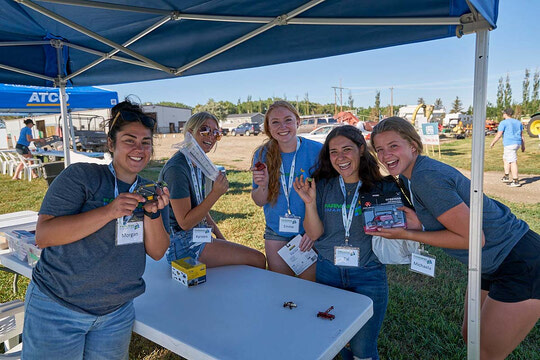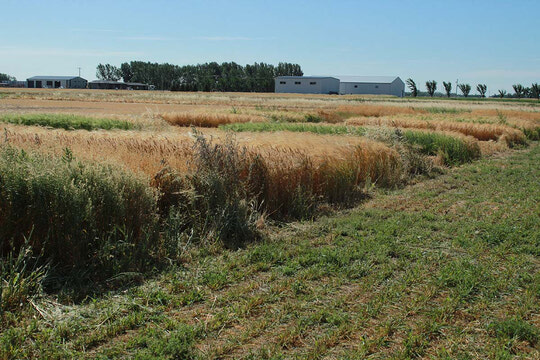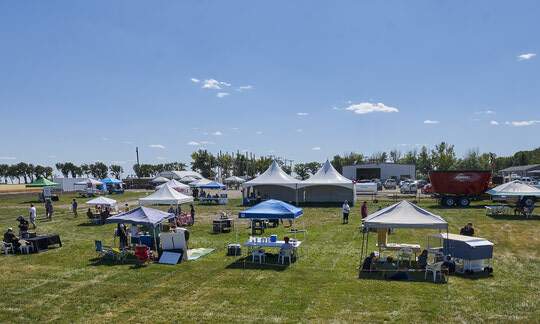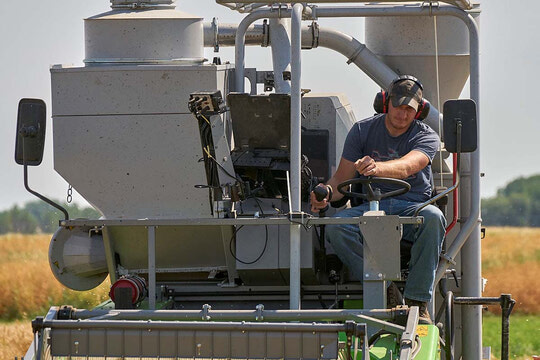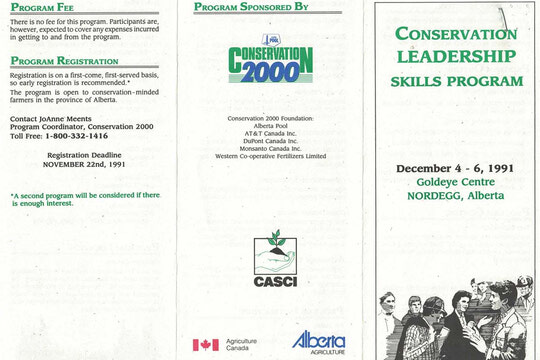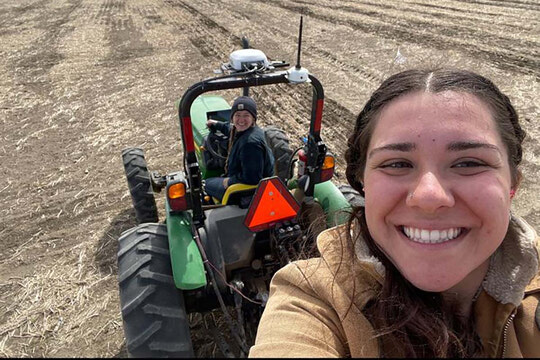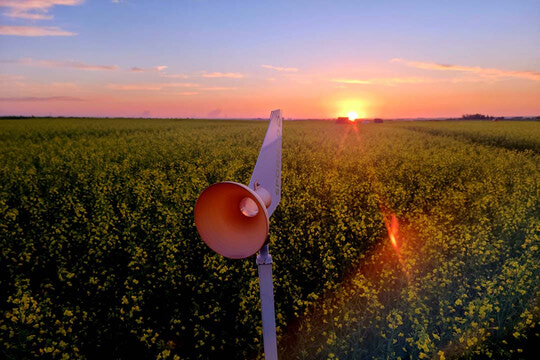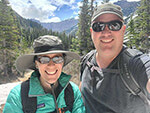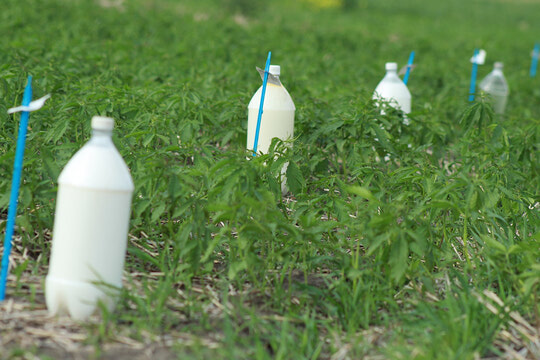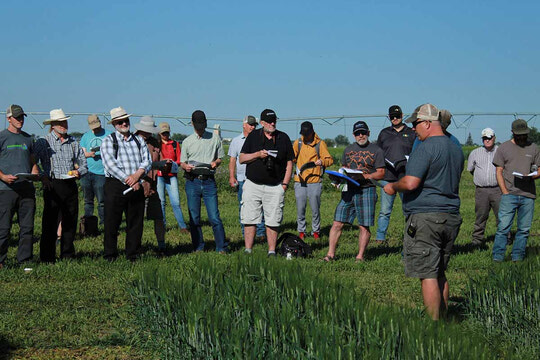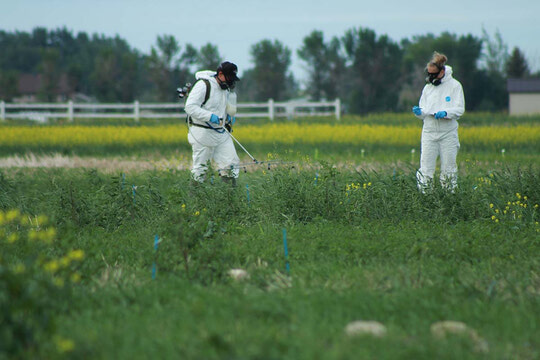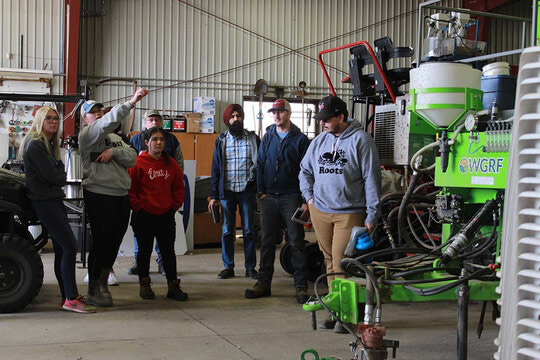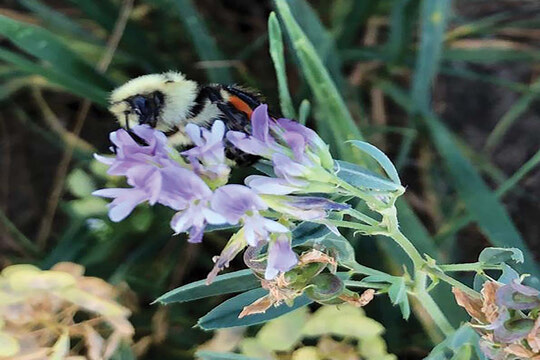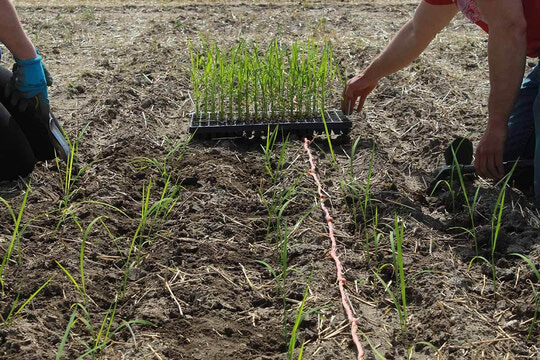News and updates
Keep up to date with the latest articles and new releases from the Farming Smarter.
Since day one, Farming Smarter's operating mandate and unrelenting pursuit has been to support southern Alberta's agricultural producers. Every applied research trial is done with primary producers' priorities in mind...
As harvest winds down, remember to get into your field afterwards and start scouting. Post-harvest scouting is the first step towards a successful season...
Producers could stay thoroughly connected to their field moisture if a system developed by Ensemble Scientific and LiteFarm proves itself in Farming Smarter fields...
This year, our Field Tested team had a big mix of everything planted in the field. Alfalfa was one of the big crops, as well as wheat, barley, canola, and pulses. As we aren't focused on harvesting for yield, this time of year is used primarily for data..
This four year study, funded by Canadian Agricultural Partnership, had locations in Bow Island, Enchant, and Medicine Hat. We investigated precision agriculture tools and mitigation opportunities available for the fight against resistant kochia.
As fall steadily approaches, our teams are busy in the field harvesting. We checked in to see how our Agronomy team was doing!
Canadian farmers produce hemp for grain, fiber, and pharmaceuticals, contributing to a growing industry of hemp-based consumer products. This industry took two decades to establish as no one in North America dealt in hemp production or products.
August 23, Farming Smarter joined the celebration of an anniversary ≥ we entered the 125th Whoop Up Days Parade! And we did it to celebrate our 10th anniversary!
This series includes five videos, all under 2:20, targeting a specific question regarding resistant wild oat management.
Saturday, Farming Smarter hosted 347 visitors at our Open Farm Day. We opened the farm for a day full of family fun as our contribution to the province-wide Alberta Open Farm Days initiative.
Our winter-hardy crops are close to harvest! As most of our fall-seeded crops, and even some of the spring-seeded varieties, approach that critical point, our Custom Research team is eager to complete this year's data!
Join us, August 13, in taking part in one of the largest agriculture events of the year ≥ Alberta Open Farm Days! We love this event as it brings so many new people out to experience agriculture and learn something about the industry in southern Alberta.
As Trevor Deering was finishing his Master of Science, he began looking for a job to kickstart his career. The dream job, for him, would be one that used his education and allowed him to continue research.
While cleaning out our office this spring, we happened upon a piece of Farming Smarter history. Technically, this artefact comes from a time before Farming Smarter existed.
A regular Tuesday in the office was flipped upside-down when a student entered the office to talk with Ken.
Our Field Tested program, along with 20/20 Seed Labs and Sporenado, work to provide producers with another option in the fight against fungicide in this study funded by Canadian Agricultural Partnership.
Ruth McCabe, Heartland Cooperative Conservation Agronomist, spent June 24 -30 with Ken and family while touring farms and southern Alberta sights...
Farming Smarter, alongside InnoTech Alberta & SARDA Ag Research, are expanding on previous hemp trials with a "Hempicide" project...
We are excited to have folks out in the field for a full day of research discussion! Join us July 21 to see the latest advancements in agriculture being undertaken at Farming Smarter!...
Pests and weeds diminish the quality of crops and can impact your yield. For example, wild oats ≥ they can become a problem fast and crowd out your crop, especially if it's canola or a cereal...
At Farming Smarter, we proudly play a role in preparing the next generation of agriculture professionals. Every year we hire multiple students to assist us with field work...
If you build it, they will come - take a pivot corner, a fence line or a ditch and turn those into a bed and breakfast for bees....
June 16, a Coaldale pub full of people came to hear UCP Leadership hopeful Travis Toews talk about his vision for Alberta. The topic of agriculture didn't come up - in Coaldale - until a Farming Smarter staffer put it on the table.
In partnership with the University of Lethbridge and Galaxy Ag Ventures, a Farming Smarter project will grow upland rice in southern Alberta. We will work with Irrigated Crop Scientist, Dr. Michele Konschuh, on this study.

